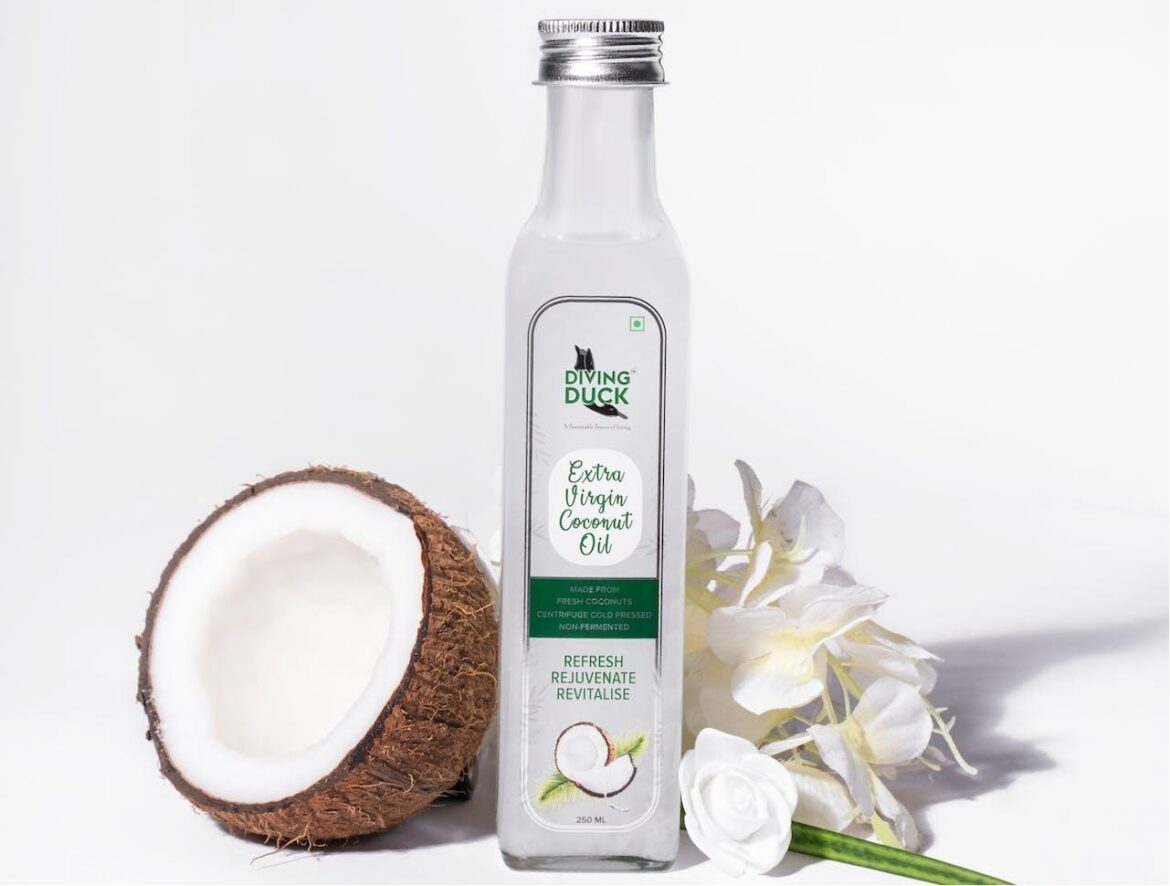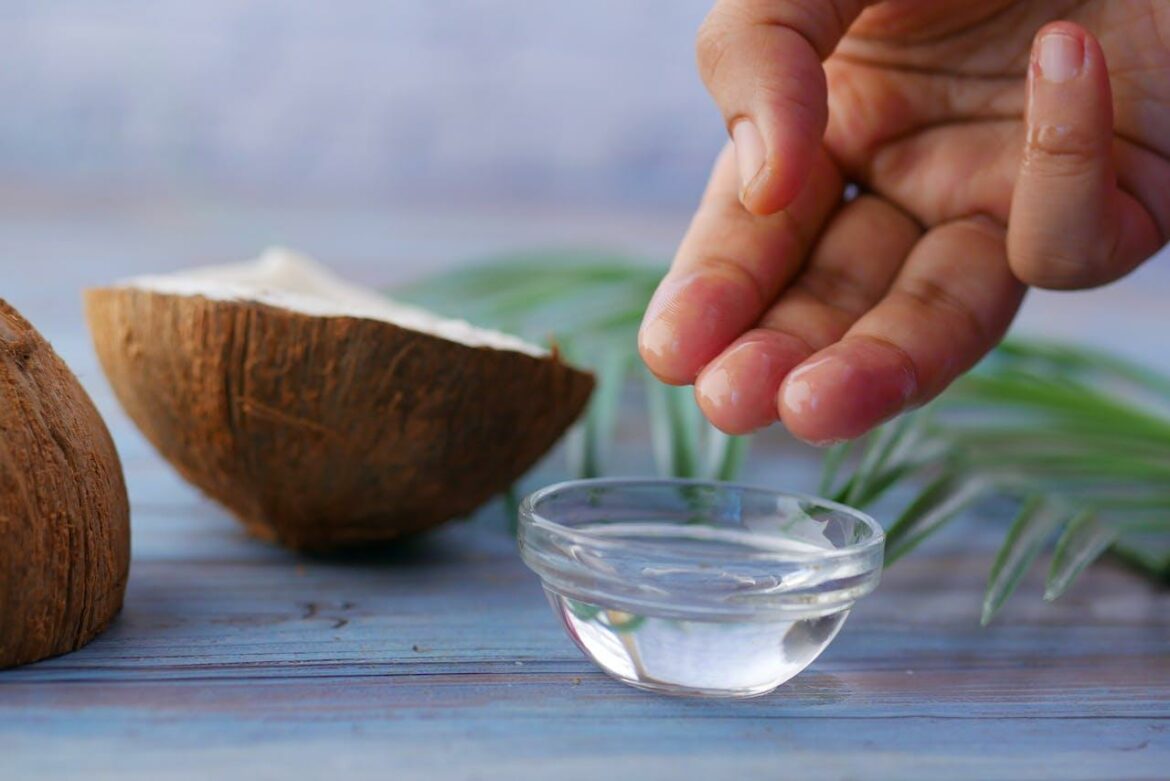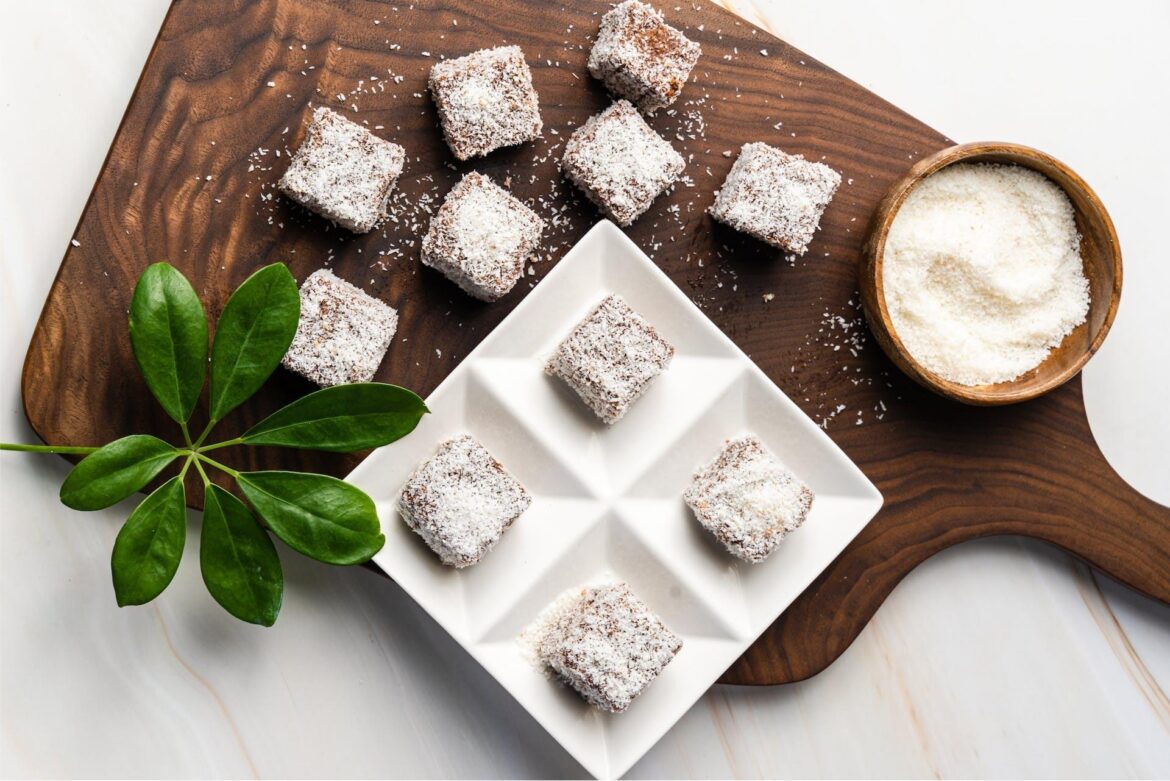The Versatility of Coconut Oil
If you have ever considered coconut oil a cooking ingredient, think again! This liquid gold has way more tricks up its sleeve than you might imagine.
Picture this: You are strolling down the aisles of your local grocery store and spot that familiar jar of coconut oil. Before you dismiss it as just another kitchen staple, consider this your invitation to the coconut oil appreciation party.
Whether you are in the kitchen, bathroom, gym, or just having a lazy day at home, coconut oil might just be the secret ingredient you never knew you needed.
So, buckle up because we are about to explore the myriad ways this tropical elixir can add a splash of goodness to your life.
The Coconutty History

Our story begins in the tropical paradise of Southeast Asia, where coconuts are believed to have originated. There are 5,000-year-old cave paintings that tell a tale of the existence of coconut oil in New Guinea. However, it is believed that coconut existed in the prehistoric era.
With their tough exterior and sweet interior, coconuts quickly became a staple in the diets of the region’s early inhabitants.
Did you know that coconuts have made their mark in ancient texts? From Indian Sanskrit writings to Arabian Nights, these hairy little drupes have been praised for their versatility and sustenance. They even played a role in religious ceremonies, symbolizing fertility and abundance.
The spread of coconuts across the globe is often attributed to the Austronesian peoples, skilled seafarers who embarked on long voyages of exploration and trade. They carried coconut palms, establishing coconut groves in new territories they encountered. This process, known as “coconut diaspora,” led to the widespread distribution of coconut palms throughout South Asia, East Africa, and the islands of the Pacific.
The economic importance of coconuts cannot be overstated. The coconut palm is often called the “tree of a thousand uses” because nearly every part of the tree has economic value. The coconut fruit is a valuable food source, providing coconut water, coconut milk, and coconut oil. The flesh of the coconut is used in various culinary applications, from savory dishes to desserts.
Coconut Oil Nutrition

Fatty Acid Composition
Approximately 92% of the fatty acids in coconut oil are saturated, with a significant portion (about 47%) being lauric acid. The remaining saturated fats include caprylic acid, capric acid, and myristic acid. Additionally, coconut oil contains small amounts of monounsaturated and polyunsaturated fats.
Caloric Content
Like all fats, coconut oil is energy-dense.
- It provides about 120 calories per tablespoon, so it is essential to use it in moderation.
- It has 0 g protein, 11.2 g saturated fat and 0 milligrams of cholesterol.
- It contains Vitamin E and no fiber.
Types of Coconut Oils
Organic Coconut Oil
Organic coconut oil is sustainably sourced and free from pesticides. From cooking to DIY beauty treatments, it’s a guilt-free indulgence. So, if you want to make your coconut oil experience a bit eco-friendlier, this one’s for you.
Refined Coconut Oil
Refined coconut oil goes through some processing to remove the coconut scent and flavor. With a higher smoke point, it’s fantastic for frying and baking without overpowering your dishes with a coconut vibe.
Unrefined Coconut Oil
Unrefined coconut oil undergoes minimal processing, letting its coconutty personality shine through. Whether you’re sautéing veggies or baking cookies, unrefined coconut oil brings a taste of the tropics to your culinary adventures.
Fractionated Coconut Oil
Unlike its solid siblings, this one stays liquid even at cooler temperatures, making it the perfect skincare companion. Lightweight and non-greasy, it is mostly used in cosmetics. Mix it with your favorite essential oils to create DIY cleansers or soothing bath potions.
Cold-Pressed Coconut Oil
Cold-pressed coconut oil is extracted without heat, preserving all the natural goodness. You can use it for drizzling on your morning toast or as a finishing touch to your dishes.
Coconut Oil for Cooking vs. Coconut Oil for Skincare
Food-grade coconut oil is extracted from the meat of fresh coconuts. The process involves pressing the coconut to extract the oil, producing a pure, unrefined product with no additives or chemicals. Coconut oil remains stable, unlike other oils, which can become a smoky disaster at high temperatures. This makes it perfect for frying, sautéing, and even baking.
On the other hand, cosmetic-grade coconut oil undergoes a meticulous refining process that ensures purity and quality, making it a top-tier choice for your skin. It’s packed with moisturizing properties that leave your skin feeling as soft as a cloud.
Uses of Coconut Oil

Coconut oil is a multitasking superhero that can work wonders in various aspects of your life. From your beauty routine to your kitchen adventures, this natural elixir has got you covered. Let’s take a look at its uses:
Gives You Luscious Locks
Whether your hair is suffering from the aftermath of styling tools or the harsh sun, coconut oil acts as a natural conditioner. Warm up some oil and massage it into your hair and scalp. Leave it on for a while (Netflix and chill, anyone?) before washing it off for a head of hair that even Rapunzel would envy.
Is a Skin Saver
If you haven’t swapped your chemical-laden moisturizers for coconut oil yet, it’s time to make the switch. Packed with fatty acids, coconut oil is a fantastic skin moisturizer. It hydrates your skin without clogging pores, making it a perfect solution for dry elbows and knees and even as an all-over body moisturizer. Bonus: It smells like a tropical paradise!
For the Ultimate Kissable Lips
Ditch your regular lip balm and use coconut oil to keep your pout soft and supple. The natural moisturizing properties of coconut oil work wonders on dry and cracked lips. You can even mix it with some sugar to create a DIY lip scrub for the ultimate pampering session.
Makeup Remover
Breaking up with waterproof mascara and stubborn eyeliner is now a breeze. Coconut oil effortlessly melts away makeup, leaving your skin clean and nourished. Just a small amount on a cotton pad can remove the black gunk in one wipe. Plus, it’s gentle on the eyes.
Healthy Cooking Companion

Let’s not forget the roots of coconut oil – the kitchen! Coconut oil’s high smoke point makes it an excellent choice for cooking, whether sautéing veggies or frying some chicken. Its unique flavor adds a delightful twist to both sweet and savory dishes.
Pro Tip: Try it in your morning coffee for a creamy kick.
Stress-Relieving Massage Oil
After a long, exhausting day, treat yourself to a coconut oil massage. Its subtle aroma and smooth texture make it an ideal choice for a relaxing massage. It not only soothes tired muscles but also nourishes the skin, giving you a double dose of relaxation.
Shaving Savior
Who needs fancy shaving creams when you have coconut oil? It provides a slick surface for your razor, reducing friction and preventing those pesky razor burns. Your legs will thank you for the extra dose of hydration, leaving them silky smooth.
Cavity Fighter

Yes, you read that right. Coconut oil contains antibacterial properties, and oil pulling with coconut oil has been touted as an ancient technique to promote oral health. Swish a tablespoon of coconut oil around in your mouth for about 15 to 20 minutes, and voilà! You have got yourself a natural mouthwash that could potentially keep those cavities at bay.
Wooden Wonder
Coconut oil makes for an excellent wood polish. It not only adds a lustrous shine but also helps prevent the wood from drying out.
Leather TLC
Keep your leather goods looking brand new by treating them to a coconut oil massage. From shoes to bags, coconut oil can restore and moisturize leather, giving it a longer life and a well-maintained appearance.
Benefits of Coconut Oil

Coconut oil isn’t just for piña coladas and beachy vibes. While massaging it into your scalp and hair relaxes your mind and body, plenty of other jaw-dropping benefits will make you rethink its simple tropical status.
Aids in Weight Loss
What makes coconut oil so special in the world of weight loss? Well, it’s all about the fats. Coconut oil is rich in medium-chain triglycerides (MCTs), a type of fat metabolized differently than the long-chain fatty acids found in many other oils.
Unlike your run-of-the-mill fats, MCTs take a shortcut straight to your liver, where they can be quickly converted into energy. As they kick in, your body shifts into a higher gear, burning calories more efficiently. This metabolic boost can significantly affect your overall energy expenditure throughout the day.
But it’s not just about the calories you burn during your morning routine. The increased metabolic rate can have a lasting impact, helping you torch more calories during workouts and even at rest.
Fights Bacteria with Antimicrobial Powers
Coconut oil is rich in lauric, capric, and caprylic acid, all of which possess potent antimicrobial properties. When you consume coconut oil, lauric acid gets converted into monolaurin, a compound that packs a powerful punch against harmful microorganisms.
As for capric and caprylic acids, they are effective against a range of bacteria and fungi. Together, they create a hostile environment for microbes, making it difficult for them to thrive.
Might Reduce Hunger Pangs

When you consume coconut oil, your body breaks down those MCTs into ketones. Ketones are chemicals your liver produces to break down fats. They swoop in when glucose (sugar) is in short supply and reduce hunger pangs.
Ketones can suppress the hunger hormone ghrelin, which tells your brain it’s time to eat. With ketones in the mix, this urge is diminished.
Might Help Reduce Seizures
While coconut oil’s potential benefits in epilepsy and seizures are still being explored, some studies have suggested that it might have anticonvulsant properties. Why? Because coconut oil is rich in medium-chain triglycerides (MCTs), specifically one called caprylic acid. These MCTs are thought to provide an alternative energy source to sugar for the brain, potentially helping to control seizures.
The ketogenic diet, a high-fat, low-carbohydrate diet that also produces ketones, has been used for decades to manage epilepsy, especially in children. Some researchers believe that the ketones produced from MCTs in coconut oil may have a similar effect, helping stabilize brain activity and reduce seizures.
Might Help Reduce and Manager Alzheimer’s Disease Symptoms
While scientists are working tirelessly to unlock the secrets of this debilitating disease, there’s been some chatter about coconut oil swooping in as a lifesaver.
In Alzheimer’s, the brain struggles to utilize glucose effectively, leading to energy deficits. The beauty of MCTs lies in their ability to provide an alternative energy source, potentially circumventing the glucose roadblocks in the Alzheimer’s brain.
Some studies suggest that ketones could enhance cognitive function, providing a much-needed lifeline for individuals grappling with Alzheimer’s. It’s not a cure, but it might be a noteworthy player in helping manage the symptoms.
Helps Fight Candida
Candida is a type of yeast that naturally resides in our bodies. However, when it gets out of control due to factors like a weakened immune system, poor diet, or excessive antibiotic use, it can lead to various symptoms. Think itching, burning, and a general discomfort that nobody wants.
Coconut oil packs a punch of potent antifungal properties thanks to its high lauric acid content. It fights off harmful microbes by acting as a barrier against the fungi, helping restore balance in your system.
Prevents Liver Disease
MCTs are easily digestible and quickly converted into energy than long-chain fatty acids. This efficient energy conversion takes some burden off your liver, protecting it from glucose and allowing it to focus on its detoxification duties.
Final Word
In the culinary realm, coconut oil transforms mundane meals into culinary masterpieces. Its subtle yet distinctive flavor elevates sweet and savory dishes, making it a must-have in every foodie’s arsenal. But the magic doesn’t stop there! Its high smoke point makes it a reliable partner in the frying pan, ensuring your fried delights are crispy and delicious.
Venturing beyond the kitchen, coconut oil steps into the realm of beauty and self-care with flair. Slather it on as a moisturizer or use it as a chemical-free makeup remover.
Lastly, it offers various health benefits that go beyond the surface. Its medium-chain triglycerides (MCTs) increase energy levels, boosting heart health, the immune system, digestion and more. So, swap out your regular cooking oil with coconut oil and move closer to adopting a healthy and happy lifestyle.
Act Now with Maverick Oils – Your Wellness Awaits!
Are you ready to elevate your wellness journey to new heights? Look no further! Maverick Oils invites you to embrace the goodness of nature with our exceptional range of coconut oils. From the lush tropics to your doorstep, our products bring you the purest essence of coconuts.
Our coconut oils are extracted from the finest coconuts, grown organically in pristine environments. We prioritize purity, ensuring each drop is a powerhouse of natural goodness. For more information, call (888)-516-8881.


